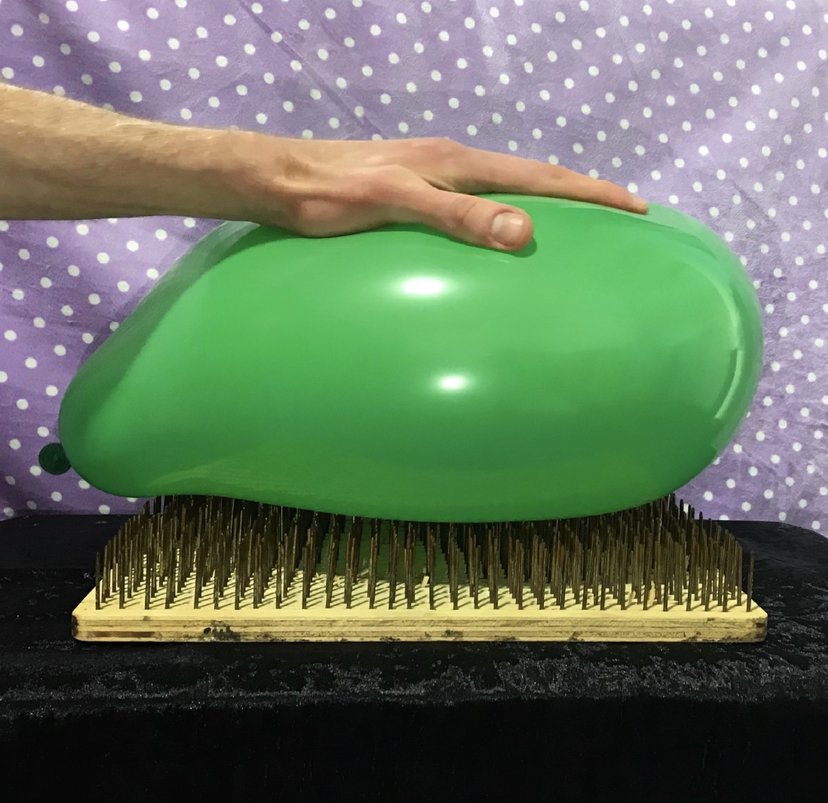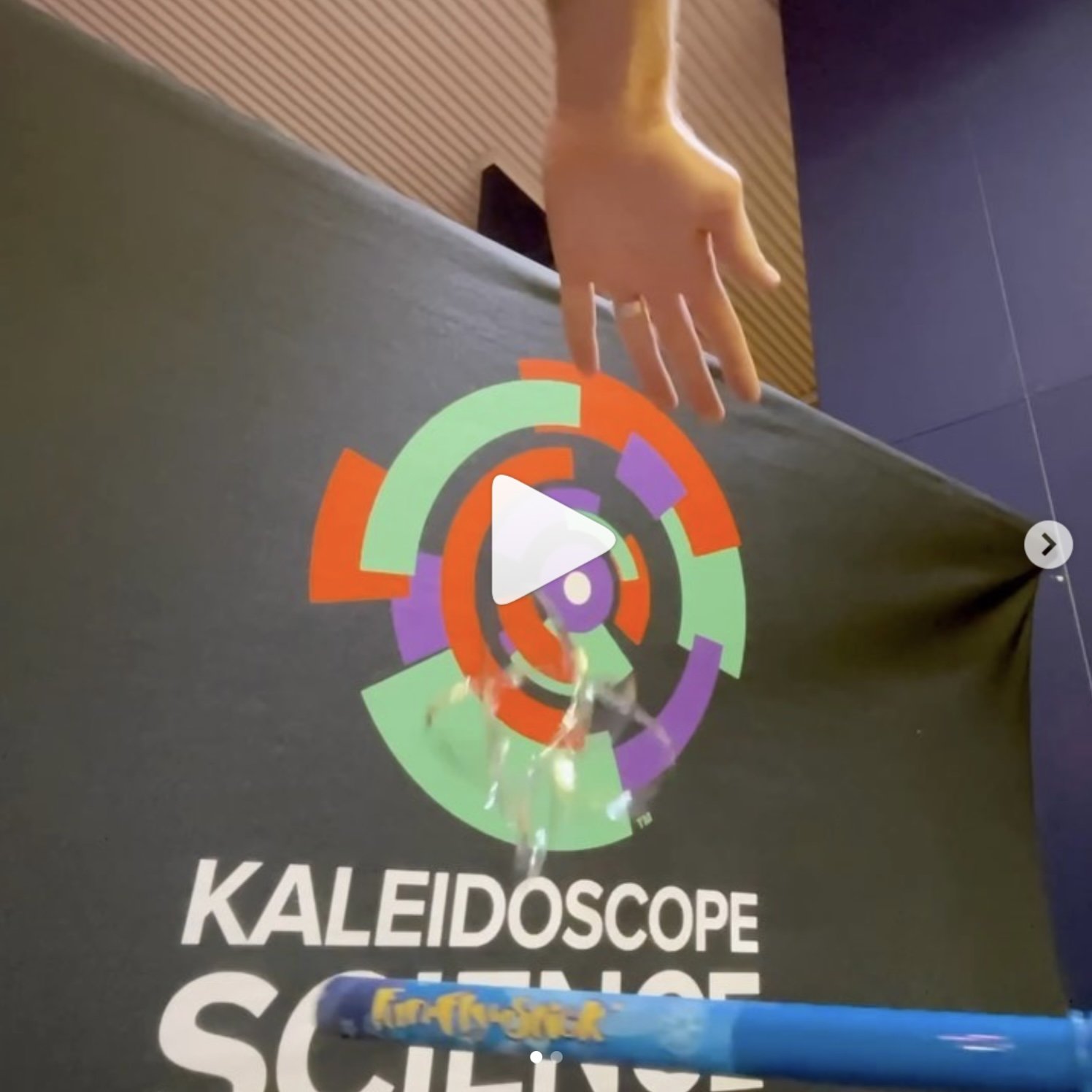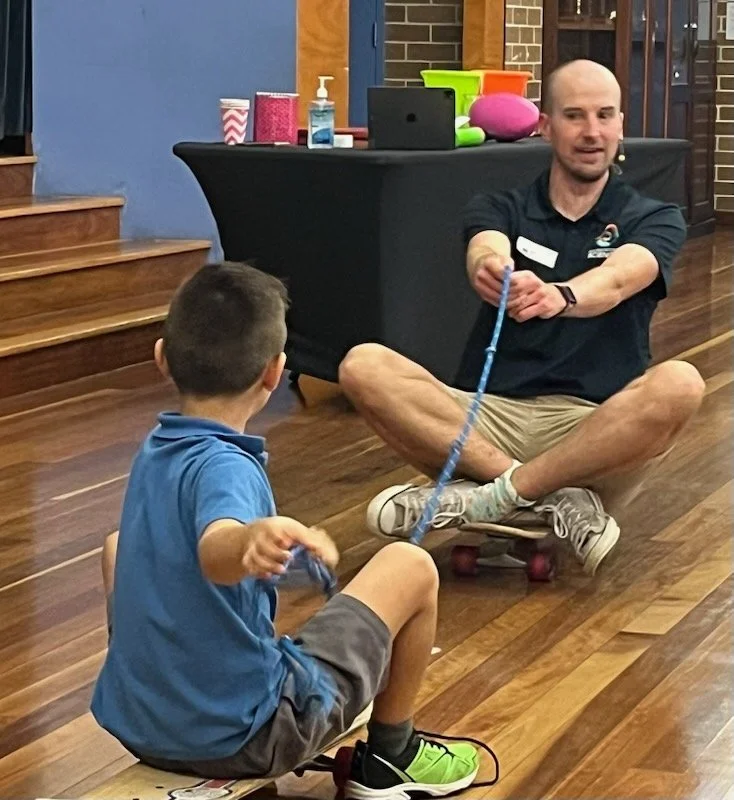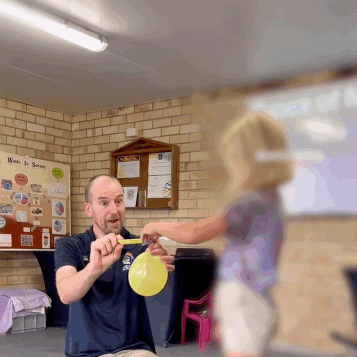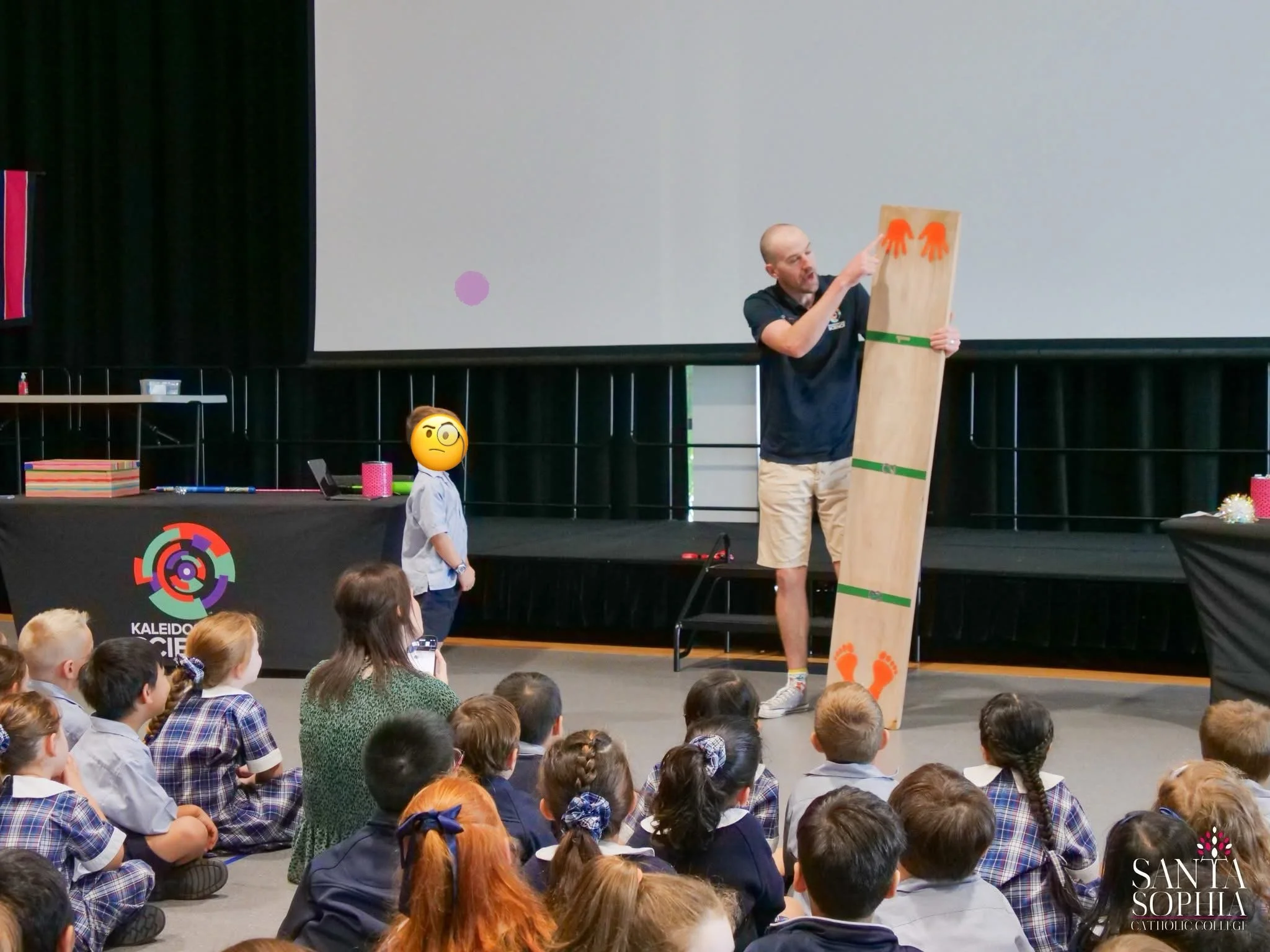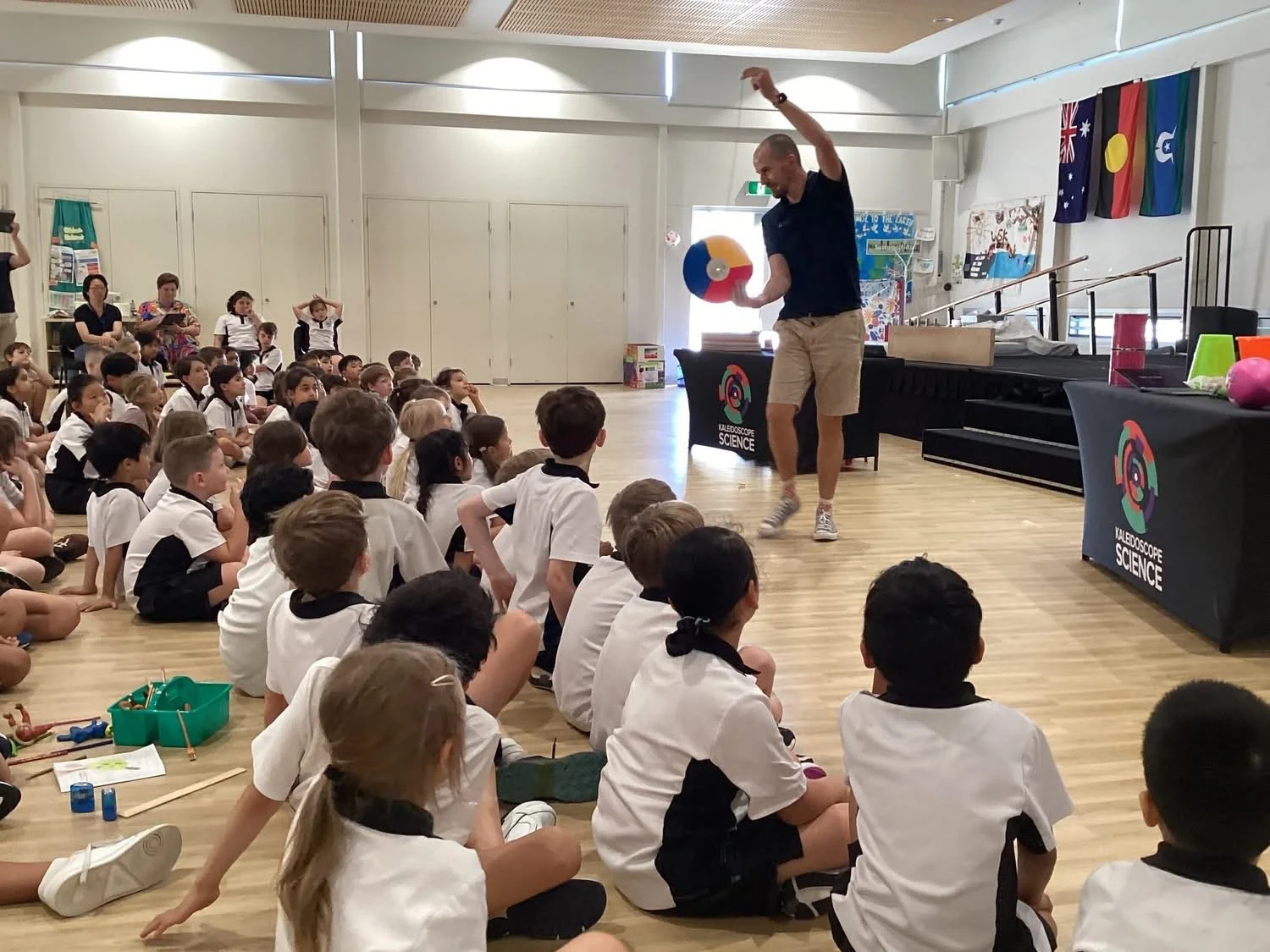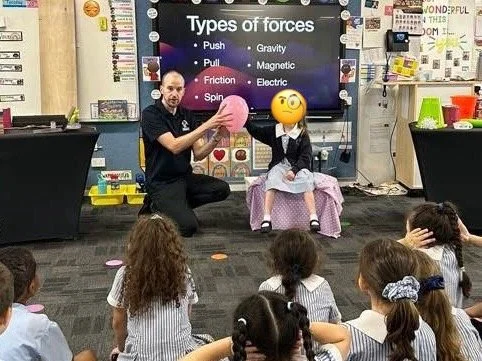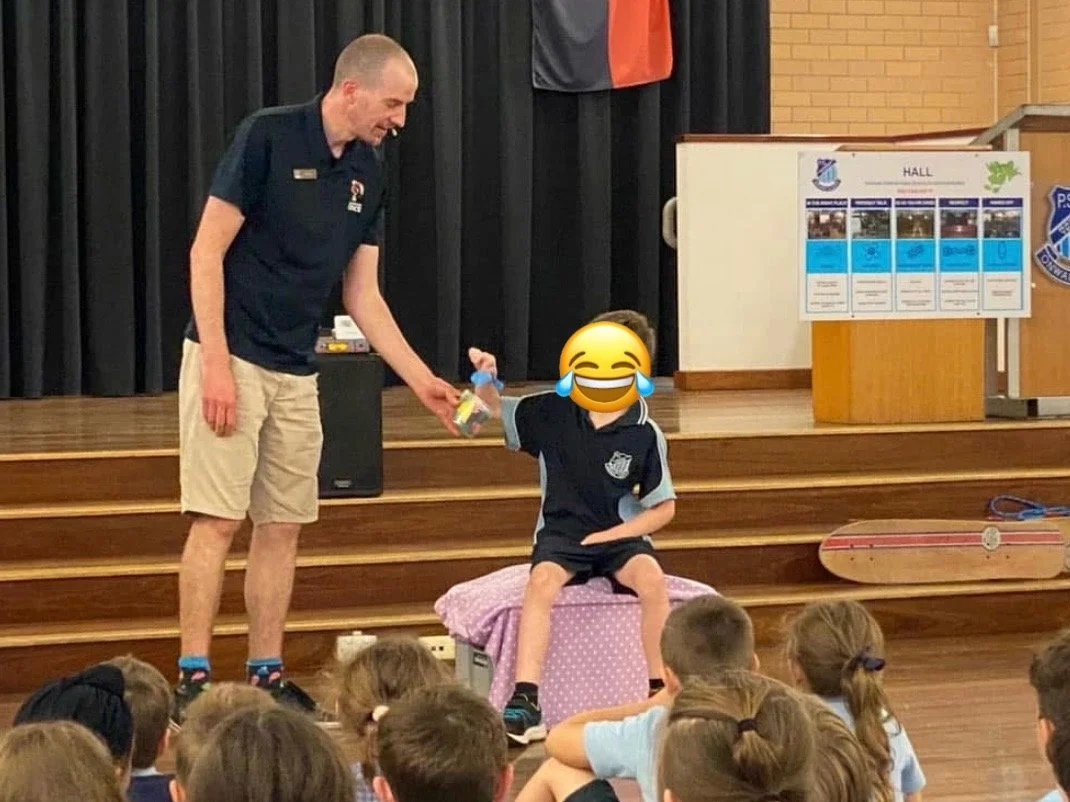The Force & Movement Show
Primary School Incursion (K-6)
Most of our favourite gadgets & toys move. How does that happen? This show tells the story of push & pull forces, motion and energy through our hand-picked, entertaining live demonstrations. Beginning with Sir Isaac Newton's famous Laws of Motion and moving on to friction, spinning, gravity & balance- if it moves, we'll figure it out!
-
Testing push & pull forces with skateboards
Testing Newton’s laws with rockets & helicopters
Reducing friction with rolling & wheels
Exploring spinning forces with a bike wheel + lazy Susan
Spinning water
Levitating objects with a fun-fly-stick
Super-human strength with a giant lever
Balancing box, balancing bird & balancing chair-on-a-stick
High pressure & low pressure, which pops a balloon?
Sit on a thousand nails
*Demonstrations performed will be customised to suit the audience age and may depend on venue or time constraints
-
$705 per show (incl. GST)
-
Sydney, Central Coast & Newcastle
-
Up to 150 students per show
-
Years K-6
-
Show runs for 60 minutes
Consecutive sessions can be scheduled back-to-back
Allow a further 30 minutes for set up and 15 minutes for pack up
-
Indoor venue (hall is ideal) with space for students to sit
Accessible off-street parking for the duration of our visit, allowing for a 1-hour set up and pack up time
(optional) 2x trestle tables, if available
(optional) Access to venue projector, if available
-
On the Move (Kindergarten)
Smooth Moves (Year 4)
Push-pull (Year 2)
-
SCIENCE UNDERSTANDING
Foundation:
The way objects move depends on a variety of factors, including their size and shape (ACSSU005)
Objects are made of materials that have observable properties (ACSSU003)
Year 1:
Everyday materials can be physically changed in a variety of ways (ACSSU018)
Year 2:
A push or a pull affects how an object moves or changes shape (ACSSU033)
Different materials can be combined for a particular purpose (ACSSU031)
Year 3:
Heat can be produced in many ways and can move from one object to another (ACSSU049)
Year 4:
Natural and processed materials have a range of physical properties; These properties can influence their use (ACSSU074)
Forces can be exerted by one object on another through direct contact or from a distance (ACSSU076)
SCIENCE AS A HUMAN ENDEAVOUR
Foundation:
Science involves exploring and observing the world using the senses (ACSHE013)
Year 1:
Science involves asking questions about, and describing changes in, objects and events (ACSHE021)
People use science in their daily lives (ACSHE022)
Year 2:
Science involves asking questions about, and describing changes in, objects and events (ACSHE034)
People use science in their daily lives (ACSHE035)
Year 3:
Science involves making predictions and describing patterns and relationships (ACSHE050)
Science knowledge helps people to understand the effect of their actions (ACSHE051)
Year 4:
Science involves making predictions and describing patterns and relationships (ACSHE061)
Science knowledge helps people to understand the effect of their actions (ACSHE062)
Year 5:
Science involves testing predictions by gathering data and using evidence to develop explanations of events and phenomena (ACSHE081)
Important contributions to the advancement of science have been made by people from a range of cultures (ACSHE082)
Scientific understandings, discoveries and inventions are used to solve problems that directly affect peoples’ lives (ACSHE083)
Scientific knowledge is used to inform personal and community decisions (ACSHE217)
Year 6:
Science involves testing predictions by gathering data and using evidence to develop explanations of events and phenomena (ACSHE098)
Important contributions to the advancement of science have been made by people from a range of cultures (ACSHE099)
Scientific understandings, discoveries and inventions are used to solve problems that directly affect peoples’ lives (ACSHE100)
Scientific knowledge is used to inform personal and community decisions (ACSHE220)
SCIENCE INQUIRY SKILLS
Foundation:
Respond to questions about familiar objects and events (ACSIS014)
Explore and make observations by using the senses (ACSIS011)
Engage in discussions about observations (ACSIS233)
Share observations and ideas (ACSIS012)
Year 1:
Respond to and pose questions, and make predictions about familiar objects and events (ACSIS024)
Participate in guided investigations to explore and answer questions, such as manipulating materials and testing ideas (ACSIS025)
Use informal measurements in the collection and recording of observations (ACSIS026)
Through discussion, compare observations with predictions (ACSIS212)
Year 2:
Respond to and pose questions, and make predictions about familiar objects and events (ACSIS037)
Participate in guided investigations to explore and answer questions, such as manipulating materials and testing ideas (ACSIS038)
Use informal measurements in the collection and recording of observations (ACSIS039)
Through discussion, compare observations with predictions (ACSIS214)
Year 3:
With guidance, identify questions in familiar contexts that can be investigated scientifically and predict what might happen based on prior knowledge (ACSIS053)
Suggest ways to plan and conduct investigations to find answers to questions (ACSIS054)
Safely use appropriate materials, tools or equipment to make and record observations, using formal measurements and digital technologies as appropriate (ACSIS055)
Compare results with predictions, suggesting possible reasons for findings (ACSIS215)
Reflect on the investigation, including whether a test was fair or not (ACSIS058)
Year 4:
With guidance, identify questions in familiar contexts that can be investigated scientifically and predict what might happen based on prior knowledge (ACSIS064)
Suggest ways to plan and conduct investigations to find answers to questions (ACSIS065)
Safely use appropriate materials, tools or equipment to make and record observations, using formal measurements and digital technologies as appropriate (ACSIS066)
Compare results with predictions, suggesting possible reasons for findings (ACSIS216)
Reflect on the investigation; including whether a test was fair or not (ACSIS069)
Year 5:
With guidance, pose questions to clarify practical problems or inform a scientific investigation, and predict what the findings of an investigation might be (ACSIS231)
With guidance, plan appropriate investigation methods to answer questions or solve problems (ACSIS086)
Decide which variable should be changed and measured in fair tests and accurately observe, measure and record data, using digital technologies as appropriate (ACSIS087)
Use equipment and materials safely, identifying potential risks (ACSIS088)
Compare data with predictions and use as evidence in developing explanations (ACSIS218)
Suggest improvements to the methods used to investigate a question or solve a problem (ACSIS091)
Year 6:
With guidance, pose questions to clarify practical problems or inform a scientific investigation, and predict what the findings of an investigation might be (ACSIS232)
With guidance, plan appropriate investigation methods to answer questions or solve problems (ACSIS103)
Decide which variable should be changed and measured in fair tests and accurately observe, measure and record data, using digital technologies as appropriate (ACSIS104)
Use equipment and materials safely, identifying potential risks (ACSIS105)
Compare data with predictions and use as evidence in developing explanations (ACSIS221)
Suggest improvements to the methods used to investigate a question or solve a problem (ACSIS108)
Photos
Latest Reviews:
FROM FACEBOOK:
This week our Wild Homeschool group had the most wonderful and exciting Science incursion on Forces and Movement by @kaleidoscopescience 🧬 We were all so engaged and loved the fun and interactive lea…more
🥼🧫 TPS students were treated with a visit from Kaleidoscope Science Incursions this morning! Mitch provided students with an enriched, fun learning experience that left smiles on all of our faces.
This week, our Year 2 students enjoyed an interactive incursion exploring motion, energy and forces. Kaleidoscope Science Incursions used some of their favourite toys and gadgets to demonstrate how ph…more
Our Stage 2 students and staff enjoyed a wonderful afternoon learning about how most of our favourite gadgets and toys move. The incursion told the story of push and pull forces, motion and energy thr…more
Most of our favourite gadgets & toys move. How does that happen? Today, Stage 3 explored push & pull forces, motion and energy in an interactive incursion hosted by Kaleidoscope Science. Beginning wit…more
Stage 1 and 2 enjoyed our science incursions today. Stage 1 had a focus on light and sound and Stage 2 on forces and movement. Thank you to kaleidoscope Science for coming out to our school.
What great fun ES1 and S1 had with Kaleidoscope: School Science Incursions learning all about forces and movement🥼🔬
Kindy and Year 2 recently experienced an amazing hands-on Science day with Kaleidoscope: School Science Incursions ! 🔬✨ Our Castle Hill students and Kellyville students joined together to explore the…more
Our kindy scientists had an absolute blast diving into the fascinating world of forces during their Science Incursion! 🤓 #science #forces
A huge shoutout to Kaleidoscope Science for an exciting visit to our Kindergartners! Our morning was filled with mind-blowing experiments and thrilling discoveries about forces and movement. Science h…more
💥🌡🧪 𝗦𝗖𝗜𝗘𝗡𝗖𝗘 𝗜𝗡𝗖𝗨𝗥𝗦𝗜𝗢𝗡 🥽🧬🔥 Thank you to Kaleidoscope Science who visited us recently for a simply earth-shattering morning of science fun! We learnt about forces and there were many…more
Year 2 were very lucky to have a Science Incursion yesterday. Students learnt all about Forces and Motion and got to participate in a range of experiments where they got to see how forces are used.
Yesterday, kindergarten engaged in an incursion with Kaleidoscope Science! We learnt all about forces that push, pull, roll, spin and slide. Thanks Mitch from Kaleidoscope Science! We had such a great…more
Kindergarten and their teachers had a lot of fun learning about force and movement at their Science incursion this week. 🧪👩🔬🧑🔬
🧪 KINDY INCURSION -Kaleidoscope 🧪
Kindergarten had so much fun playing with forces at our Science Incursion! #science #lovewhereyoulearn #nsweducation
Yesterday, K-2 students had a great time at the Science Incursion. We learnt about ‘forces’ and ‘push and pull’.
To finish off our science week celebrations we had KALEIDOSCOPE SCIENCE out at school where the students had a great time learning about all things science. A big thank you to Mrs Daughton and the sci…more
Kindergarten had lots of fun learning about forces and movement today. Thank you Mitch from Kaleidoscope: School Science Incursions for teaching us how different objects can spin, roll, pop and m…more
Our Year K students enjoyed their Science incursion with Kaleidoscope Science today! The engaging live show was a great learning experience for our students, teaching them about scientific concepts in…more
Year 3 participated in an incursion that was focused on their Science Inquiry on Forces in motion.
KINDY INCURSION -Kaleidoscope Science
Kindergarten had so much fun playing with forces at our Science Incursion!
Stage 2 have enjoyed a science workshop this week. They were taken on journey beginning with Sir Isaac Newton's famous Laws of Motion and moving on to friction, spinning, balance, machines and pressu…more
STAGE 2 INCURSION -Kaleidoscope Science
Stage 2 had so much fun playing with forces at our Science Incursion!
Students in Years 3 and 4 are currently studying FORCES. Their learning was enhanced with a Science Show from Kaleidoscope. Great authentic learning experiences.
①
Book us
②
Book a space
in your school
③
We do the rest!
We come to you - no buses ✓
Fully insured & risk assessed ✓
Teachers only required for supervision ✓
Aligned with the Australian Curriculum standards ✓
“Understanding is joyous”
Additional photography: Tracy Labour




